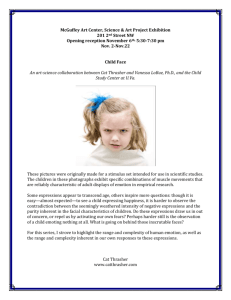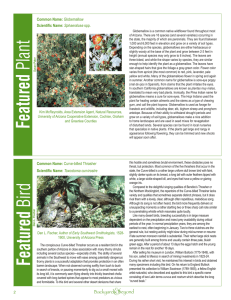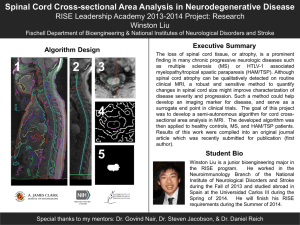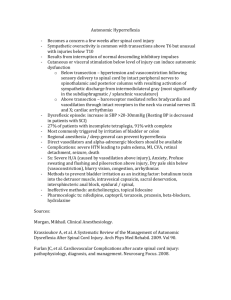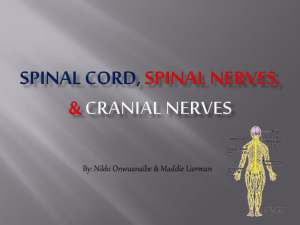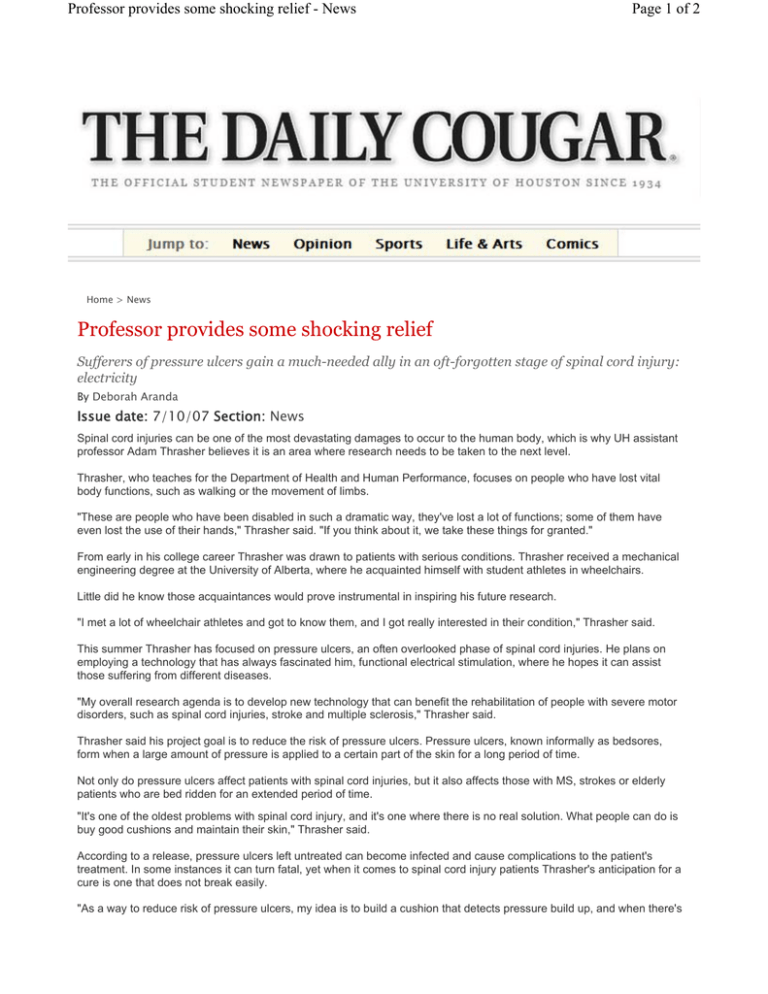
Professor provides some shocking relief - News
Page 1 of 2
Home > News
Professor provides some shocking relief
Sufferers of pressure ulcers gain a much-needed ally in an oft-forgotten stage of spinal cord injury:
electricity
By Deborah Aranda
Issue date: 7/10/07 Section: News
Spinal cord injuries can be one of the most devastating damages to occur to the human body, which is why UH assistant
professor Adam Thrasher believes it is an area where research needs to be taken to the next level.
Thrasher, who teaches for the Department of Health and Human Performance, focuses on people who have lost vital
body functions, such as walking or the movement of limbs.
"These are people who have been disabled in such a dramatic way, they've lost a lot of functions; some of them have
even lost the use of their hands," Thrasher said. "If you think about it, we take these things for granted."
From early in his college career Thrasher was drawn to patients with serious conditions. Thrasher received a mechanical
engineering degree at the University of Alberta, where he acquainted himself with student athletes in wheelchairs.
Little did he know those acquaintances would prove instrumental in inspiring his future research.
"I met a lot of wheelchair athletes and got to know them, and I got really interested in their condition," Thrasher said.
This summer Thrasher has focused on pressure ulcers, an often overlooked phase of spinal cord injuries. He plans on
employing a technology that has always fascinated him, functional electrical stimulation, where he hopes it can assist
those suffering from different diseases.
"My overall research agenda is to develop new technology that can benefit the rehabilitation of people with severe motor
disorders, such as spinal cord injuries, stroke and multiple sclerosis," Thrasher said.
Thrasher said his project goal is to reduce the risk of pressure ulcers. Pressure ulcers, known informally as bedsores,
form when a large amount of pressure is applied to a certain part of the skin for a long period of time.
Not only do pressure ulcers affect patients with spinal cord injuries, but it also affects those with MS, strokes or elderly
patients who are bed ridden for an extended period of time.
"It's one of the oldest problems with spinal cord injury, and it's one where there is no real solution. What people can do is
buy good cushions and maintain their skin," Thrasher said.
According to a release, pressure ulcers left untreated can become infected and cause complications to the patient's
treatment. In some instances it can turn fatal, yet when it comes to spinal cord injury patients Thrasher's anticipation for a
cure is one that does not break easily.
"As a way to reduce risk of pressure ulcers, my idea is to build a cushion that detects pressure build up, and when there's
Professor provides some shocking relief - News
Page 2 of 2
a danger spot, it will apply electrical stimulation to the skin, or rather to the muscles in the body," Thrasher said.
Electrical stimulation will be used in Thrasher's therapy as a way to stimulate the patient's paralyzed muscles. According
to a release, his therapy consists of placing gel electrodes onto the patient's lower back and gluteus muscles where
patients then feel a small shock in order to build up their muscles, making them more resistant to pressure ulcers.
"As I got to know more people with the condition and hear their stories, I really became dedicated to applying my
engineering skills to finding solutions," he said.
Thrasher is slowly making breakthroughs, such as developing a 16-week walking treadmill therapy during his fellowship
in Toronto. Eighty percent of the patients involved in the program had striking improvement in walking function, Thrasher
said.
"I'm very, very pleased that my work has been able to benefit so many people, and I'm just trying to come up with new
ideas and help even more," he said.
The Daily Cougar © 1991- 2007 Student Publications, All rights reserved.
University of Houston, Communication Bldg, Houston, TX 77204-4015 | ph: 713.743.5350
Powered by College Publisher

